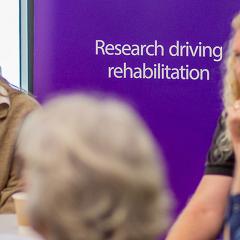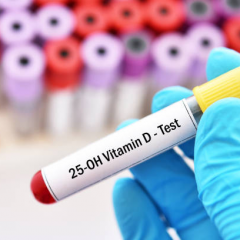Dr Atiyeh Vaezipour, a researcher from the Technology-enabled rehabilitation team at RECOVER, led on research to evaluate mobile phone apps designed to assist adults with communication disorders following an acquired brain injury (ABI).
Apps were included in the evaluation if they used speech-language therapy techniques designed for adults with communication disorders following an ABI. The apps had to be in English and readily available to consumers via online app stores.
Seventy mobile phone apps met the study criteria. Each app was scored using the Mobile Application Rating Scale (MARS)[i]. The MARS scale evaluates medical apps across several domains, including how engaging they are, their functionality, aesthetics, the information included and their perceived quality and impact.
Key results
- The apps scored an average of 3.7/5 on the MARS scale
- Most apps prioritised functionality (mean score 4.3) over the other domains (mean scores 3.3 – 3.8)
- The engagement domain was unexpectedly low (mean score 3.3/5)
- There was a limited evidence-based research for the clinical benefits of the apps.
Dr Vaezipour, explains the implications of the findings:

In the face-to-face interaction, engagement could be facilitated through the relationship and communication between the patient and clinician. However, mobile app engagement requires different strategies and should be tailored to suit an individual’s treatment goals and demographics with high level of attention to ‘human factors’ and ‘interaction design’ to achieve optimal outcomes.
Recommendations:
Recommendations for the future development of apps designed to assist people with communication disorders following an acquired brain injury include:
- Incorporating game design elements in the app to enhance engagement in therapy.
- Implementing a co-design process for developing mobile apps involving consumers and all stakeholders
- Tailoring apps to suit targeted patient group profiles
- Including a subject matter expert ratings for mobile health apps to provide a more reliable measure of the app’s quality
- That professional bodies such as Speech-Language Pathology associations establish a database where app developers could register their apps.
Why is this research important
Over 75% of individuals with acquired brain injury experience a communication disorder worldwide. Such disorders could impair their ability to produce clear speech and understand what is said to them and also express their ideas clearly. Communication disorders may have continuing impacts on employment, social participation and quality of life. Technology-enabled interventions such as mobile apps have the potential to extend the reach of speech-language therapy to treat communication disorders, especially in rural and remote areas. However, ensuring apps are evidence-based and high-quality is critical for facilitating safe and effective treatment for adults with communication disorders.
Dr Vaezipour worked alongside RECOVER colleagues Professor Trevor Russell and Emeritus Professor Deborah Theodoros as well as collaborator Dr Jessica Campbell from the Queensland Aphasia Research Centre, UQ.
The results of this study are now published in the November issue of the Journal of Medical Internet Research (JMIR). See a copy of the paper here.
[i] Stoyanov SR, Hides L, Kavanagh DJ, Zelenko O, Tjondronegoro D, Mani M. Mobile app rating scale: a new tool for assessing the quality of health mobile apps. JMIR mHealth and uHealth. 2015;3(1):e27.



